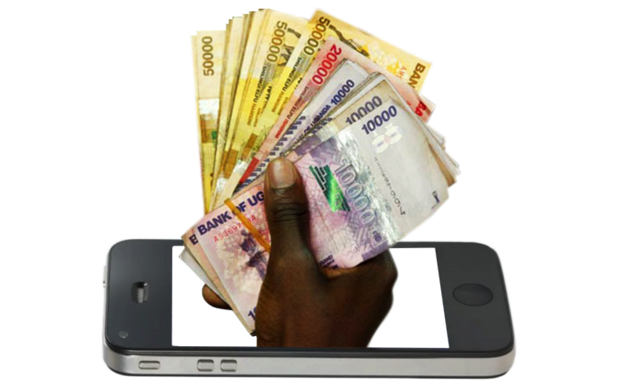
Why Nabbanja is right and others wrong
Kampala, Uganda | THE INDEPENDENT | The government is attempting a new way of getting a Shs100, 000 (Approx.US$28) one-off cash relief to people who might have slipped into poverty as a result of the ongoing 42-day lockdown to slow the spread of COVID-19.
On June 18 President Yoweri Museveni re-adjusted earlier restrictions imposed on June 7 to include a total ban on cross-boundary and inter-district movement of people and public or private transport.
The President’s action prompted calls for government support to individuals who have lost sources of livelihood. And Museveni assured citizens that the government would aid them.
“This situation was anticipated by the government and hence manageable,” Museveni said.
Despite the President’s confidence in his government’s ability to manage the fall-out from the lockdown, one major challenge has been how to distribute relief to people who might have slipped into poverty.
On June 30 the government started registering the vulnerable groups eligible to receive the one-off Shs100, 000 Covid-19 relief cash. The registered are expected to get the money in the next two weeks.
Using mobile money to transfer cash to the vulnerable is ideal because it’s fast and remote, according to cash transfer experts. Mobile money transfers are also very auditable. They can also provide quick feedback from recipients.
“It won’t be pretty; it won’t be an accurate job,” says Alessandro Bini, the director of the Somali Cash Consortium which has for 14 years been one of the biggest providers of humanitarian cash transfers to vulnerable populations in Somalia.
The Consortium is run by seven international NGOs including Concern Worldwide, Save the Children International, the Norwegian Refugee Council, Danish Refugee Council, ACTED, COOPI and Impact for the Monitoring and Evaluation.
The Director, Alessandro Bini, has advice for anyone attempting cash transfers as a COVID-19 relief response.
“Just keep it simple,” he says.
“In case of an emergency — it’s a bit like you have a massive cyclone or earthquake — the priority is to get the cash out there rather than to be very precise.”
He says going through a lengthy process of community-based targeting where you are trying to reach the poorest is complicated and the results will equally not be accurate anyway.
Stimulating the economy
Uganda’s foray into the arena of cash transfers for the vulnerable to the COVID-19 pandemic is in line with what many countries are doing.
There are 143 cash programmes in 81 countries that have been expanded or adapted to the COVID-19 crisis, according to Devex, a media platform for the global development community. Of those programmes, 65 in 43 countries are new initiatives introduced as part of the response to COVID-19.
Burkina Faso has launched a new US$10 million cash transfer programme for fruits and vegetable sellers. Columbia announced a one-off payment of US$108 for informal workers. Egypt is targeting 1.5 million individuals working in areas such as construction, ports, agriculture, fishing, plumbing and electricians. El Salvador has pledged to give US$300 to about 1.5 million households in the informal economy. Madagascar is targeting 150,000 households with U.S$27. Haiti announced a one-off cash transfer to about 1.5 million households, according to the World Bank.
Cash transfers have been used for years by humanitarian agencies, including the UNHCR in Uganda. In the 2020 lockdown, the United Nations World Food Programme (WFP) and Government of Uganda gave emergency cash transfers targeting more than 56,000 pregnant and breastfeeding women and children under the age of two, including refugees, in West Nile region.The WFP also gave cash assistance to Kampala-based refugees.
Speed of transfers is the main selling point of the cash transfer method when compared to others that involve distribution of in-kind items such as food.
An article titled ‘Cash transfers lead the social assistance response to COVID-19’ quotes Joe Huston, managing director at GiveDirectly, the largest nonprofit organisation focused on cash transfers.
“(With lockdowns) you’re basically shutting down economies to try to control the spread of the disease overnight,” he says, “In any type of recession, you want to get cash to people quickly, but I think this situation especially accentuates that.”
The non-profit organisation GiveDirectly works extensively in East Africa, providing large, one-off unconditional cash transfers to households.
GiveDirectly in partnership with the Ministry of Local Government and the Ministry of Kampala was in August 2020 involved in transferring approximately US$10 million from the U.S. Agency for International Development (USAID) in COVID-related assistance to individuals and families who lost livelihoods as a result of COVID-19 and were at risk of food insecurity. Up to 120,000 Ugandans across six cities were given Shs100, 000 each month for three months. By September 2020, up to 47,128 Ugandans were enrolled in the programme.
The U.S embassy in Kampala cancelled the programme in September following a review of GiveDirectly’s activities in Uganda by the NGO Bureau that resulted in the programme’s suspension.
Earlier from February 2020, even before the government imposed the COVID-19 lockdown on March 30, 2020, GiveDirectly had through mobile money rolled out US$1000 unconditional cash transfers to all 10,000 refugee households in the Kiryandongo refugee settlement. The government also suspended this programme in September 2020.
The post Mobile money cash for COVID-19 poor appeared first on The Independent Uganda:.
from The Independent Uganda: https://ift.tt/36cwK1B
0 Comments